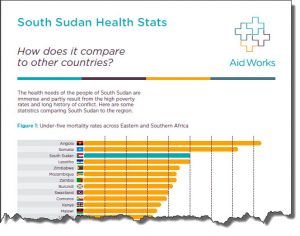The past year has been a year of seismic shifts on the global stage. Fake news, bad news, attention-grabbing headlines questioning the effectiveness of aid. But we believe that aid can work and statistics prove us right.
2017 was our most successful year yet thanks to our committed team and we are incredibly proud of what we have achieved together.
We hope you enjoy our year in review - download our Annual Report 2017 here.




